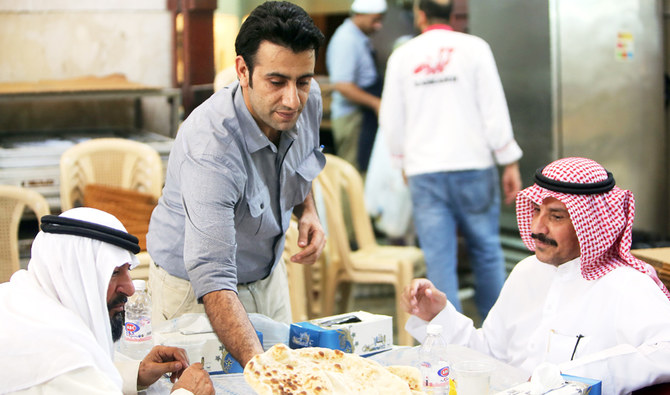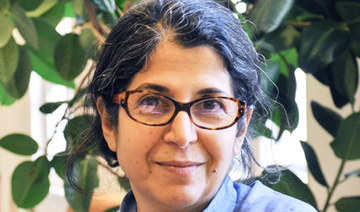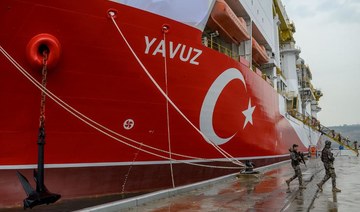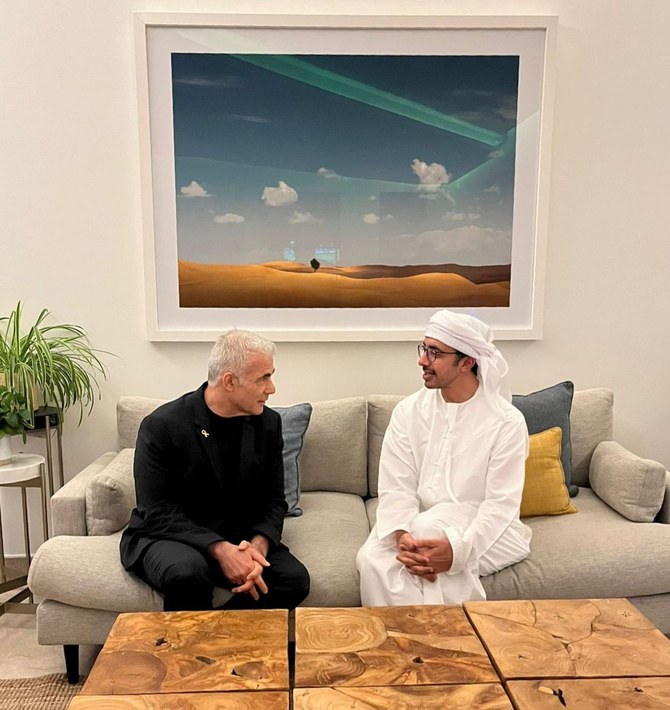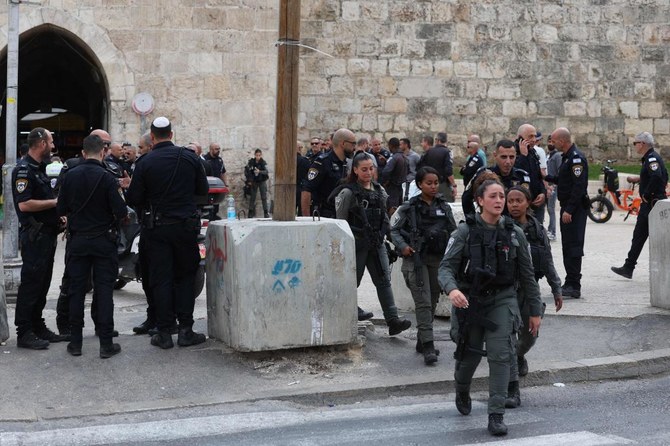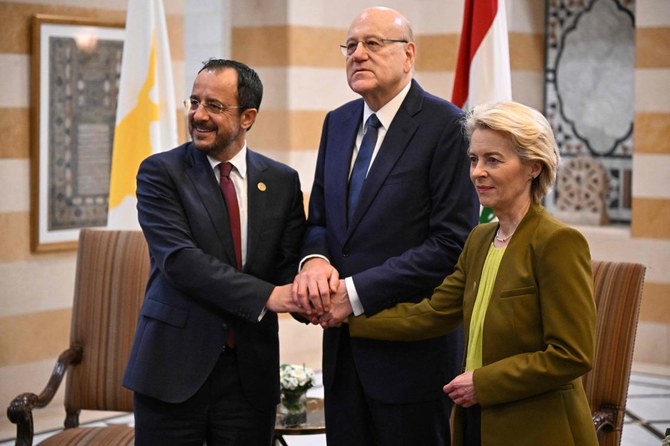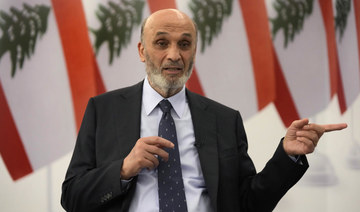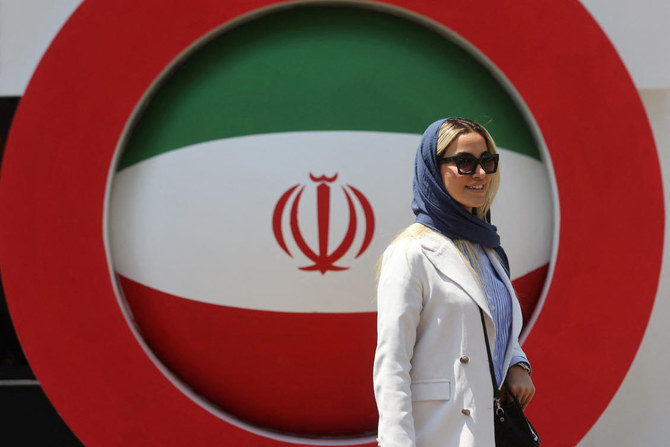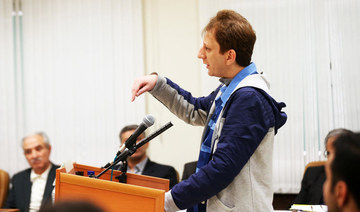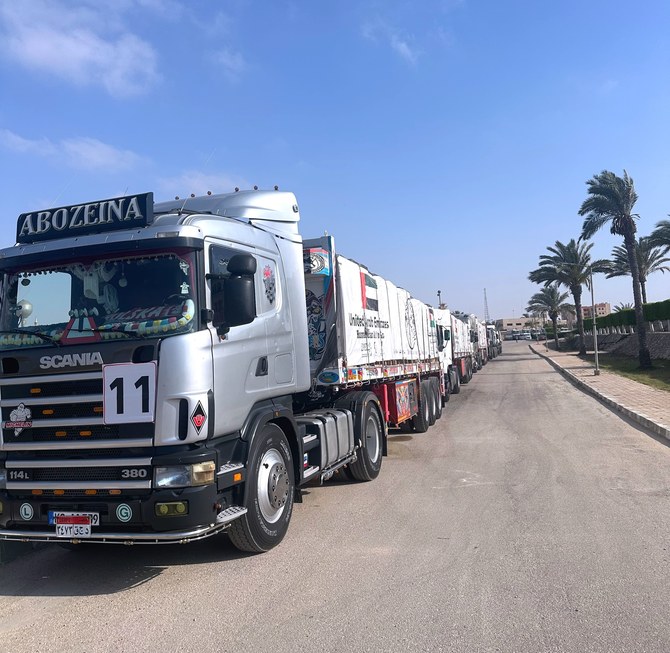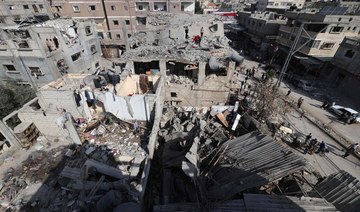KUWAIT CITY: Khalil Kamal makes sure he regularly visits Kuwait’s popular Souq Al-Mubarakiya, where he enjoys his favorite kebab meal with onion, rocket and freshly baked Iranian bread.
The smell of the bread wafts through the market as it bakes in a traditional oven at the Al-Walimah restaurant in downtown Kuwait City.
The restaurant’s Iranian baker takes one of the many dough balls lined up in front of him and spreads it over a cushion, using the pad to stick the dough against the inside wall of the clay oven.
Once ready, he uses a long stick to reach in and pull out a steaming rounded loaf, served piping hot to customers.
For decades, Iranian bread — known as taftoon — has been a staple of Kuwaiti breakfast, lunch and dinner tables.
“Iranian bread is the only bread we’ve known since we were born,” 60-year-old Kamal told AFP.
Hassan Abdullah Zachriaa, a Kuwaiti of Iranian origin, opened Al-Walimah in 1996. Its tables are spread across a courtyard, surrounded by wooden columns and entryways.
Zachriaa, in his 70s, said the restaurant puts out between 400 and 500 loaves of Iranian bread a day.
“The big turnout in Kuwait for Iranian bread stems from the fact that for decades, our mothers used to make it at home,” he told AFP.
“We then started to buy it from bakeries and stand in lines to get it fresh and hot in the morning, noon and evening.”
The flat bread is offered alongside many dishes popular in Kuwait such as Al-Baja, lamb bits stuffed with rice, Al-Karaeen, cooked sheep feet, classic chickpea plates, or beans and cooked fish.
Almost all restaurants in the old market have their own traditional clay ovens where either Iranian or Afghan bakers work.
HIGHLIGHTS
• Taftoon is offered alongside many dishes popular in Kuwait such as Al-Baja, lamb bits stuffed with rice.
• Almost all restaurants in the old market have their own traditional clay ovens where either Iranian or Afghan bakers work.
• The bread has remained popular in Kuwait despite escalating tensions in the past year between Iran on one side and the US on the other.
• Bakeries specializing in Iranian bread began popping up in Kuwait in the 1970s and have since expanded to more than 100.
Derbas Hussein Al-Zoabi, 81, a customer at Al-Walimah, said many Kuwaitis were raised on Iranian bread.
“Since childhood, Iranians baked bread for us ... and we used to eat it in the morning with milk and ghee” — clarified butter.
Other than at street markets, Kuwaitis can buy Iranian bread from co-ops, where people line up in the early hours of the morning and again in the evening to get the freshly baked goods.
Some bakeries even have designated segregated entryways for men and women.
Some Kuwaitis customise their orders with spreads of sesame, thyme and dates, and many come prepared with cloth bags to keep the bread as fresh as possible on the trip home.
Bakeries specializing in Iranian bread began popping up in Kuwait in the 1970s and have since expanded to more than 100, according to deputy chief of the Union Co-operative Society Khaled Al-Otaibi.
“These bakeries produce 2 million loaves of bread a day to meet the needs of Kuwaitis and residents,” he told AFP.
“They receive fuel and flour at a subsidised price so that bread is available for not more than 20 fils (less than seven cents).”
The price however can go to up to 50 fils depending on the amount and type of additives, including sesame and fennel.
Taftoon has remained popular in Kuwait despite escalating tensions in the past year between Iran on one side and the US on the other.








